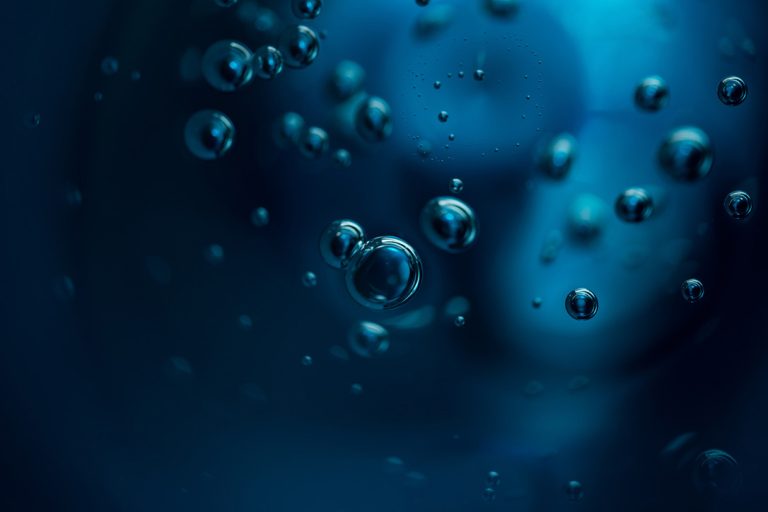A subtle revolution is gathering pace beneath the hulls of the world’s merchant fleet, where an unassuming blend of water and oil could offer shipowners a pragmatic path through tightening environmental mandates. Against a backdrop of cautious ordering for newbuilds and mounting pressure to hit urgent decarbonisation milestones, one technology is quietly positioning itself as the bridge between today’s heavy fuel oil and tomorrow’s greener alternatives.
Despite a slowdown in overall new ship contracts, demand for vessels powered by lower-carbon fuels has surged. In the first half of 2025, orders for eco-fuelled vessels leapt by nearly eighty per cent in tonnage terms year-on-year, even as the total number of ships on order dipped modestly. LNG remains the leading choice, with over eighty vessels committed this year, while methanol has caught the eye of owners across container, RoPax and tanker segments. More nascent options such as ammonia and hydrogen are also beginning to appear on order books, signalling that shipowners are embedding sustainability into long-term planning rather than treating it as an experimental sideline.
Yet for many operators, the leap to ammonia or methanol-ready engines carries formidable costs and logistical hurdles. Engine retrofits require scarce shipyard slots, fewer than twenty yards globally can perform alternative-fuel conversions, totalling around three hundred refits annually, and bunkering infrastructure for zero-carbon fuels remains patchy in most ports. Meanwhile, LNG’s own credentials are under scrutiny: new regulations penalise its well-to-wake footprint due to methane slip, pushing it into non-compliance tiers by the early 2030s.
It is within this landscape of urgency and uncertainty that emulsion fuels have re-emerged as an intriguing compromise. Quadrise, a specialist in water-based fuel emulsions, is gearing up to demonstrate its solution at commercial scale in the third quarter of 2025. In collaboration with global commodities partner Cargill and leading carrier MSC, the company will produce its MSAR® and bioMSAR™ fuels at an Antwerp facility, using bio- and conventional feedstocks supplied by Cargill, before bunkering them for sea trials aboard MSC vessels. Success in these trials promises to unlock long-term supply agreements, leveraging Antwerp’s existing bunker logistics and paving the way for similar hubs in major marine bunkering centres.
At the heart of Quadrise’s approach is an emulsion that breaks fluid into microscopic oil droplets suspended in water, droplets that measure just one to ten microns, compared to the hundred-micron size typical of marine fuels. This dramatic increase in surface area promotes more complete combustion, slashing carbon dioxide emissions by up to nine per cent for MSAR and exceeding twenty per cent for bioMSAR blends, while also reducing NOₓ emissions by nearly half thanks to lower combustion temperatures. Perhaps most appealing to shipowners, these drop-in fuels demand no engine modifications or new storage infrastructure: they can be handled, stored and pumped using the same equipment already in place for heavy and very low sulphur fuel oils, and production lines can be set up within a year.
For investors, the proposition holds multiple attractions. The company’s modular production model minimises upfront capex and allows for rapid scale-up across key bunker ports. By sidestepping the need for engine overhauls, emulsion fuels offer an expedient means to deliver measurable emissions cuts ahead of more capital-intensive conversions to ammonia or methanol. This alleviates the industry’s pinch point, limited retrofit capacity and patchy fuel supply, while enabling shipowners to demonstrate early compliance with the International Maritime Organization’s escalating GHG intensity targets for 2030 and beyond.
Moreover, as vessel orders for alternative fuels slow, the interim market for transitional solutions is widening. With overall bunker demand remaining robust, global consumption of marine fuels is projected to grow modestly even as shipbuilding softens, there is ample room for novel fuel types that fit within existing supply chains. Quadrise’s partnerships with Cargill and MSC signal industry confidence, and the planned trials will be a critical inflection point, offering tangible proof of performance and commercial viability.
The technology also dovetails with broader sustainability imperatives. By blending water‐soluble biofuels derived from second-generation biomass and non-food waste, bioMSAR not only reduces lifecycle emissions but aligns with circular economy objectives. In an era when corporate decarbonisation commitments are under investor and regulatory scrutiny, the ability to demonstrate substantive carbon abatement via an established fuel distribution network could prove compelling.
As the shipping sector navigates a complex matrix of environmental regulations, infrastructure constraints and investment cycles, emulsion fuels like those from Quadrise may well represent the most pragmatic stepping stone. They promise immediate carbon benefits, a familiar logistics framework and a scalable production footprint, all while the industry readies itself for next-generation zero-carbon fuels. For investors seeking exposure to maritime decarbonisation without the high risk and long timelines of green hydrogen or ammonia, emulsion technology offers an unusual but quietly compelling proposition.
Quadrise plc (LON:QED) is an energy technology provider whose solutions enable production of cheaper, cleaner, simpler and safer alternatives to fuel oil and biofuels, proven in real world applications. Quadrise technologies produce transition fuels called MSAR® and bioMSAR™, which allow clients in the shipping, utilities and industrial sectors to reduce carbon emissions whilst also saving costs.





































